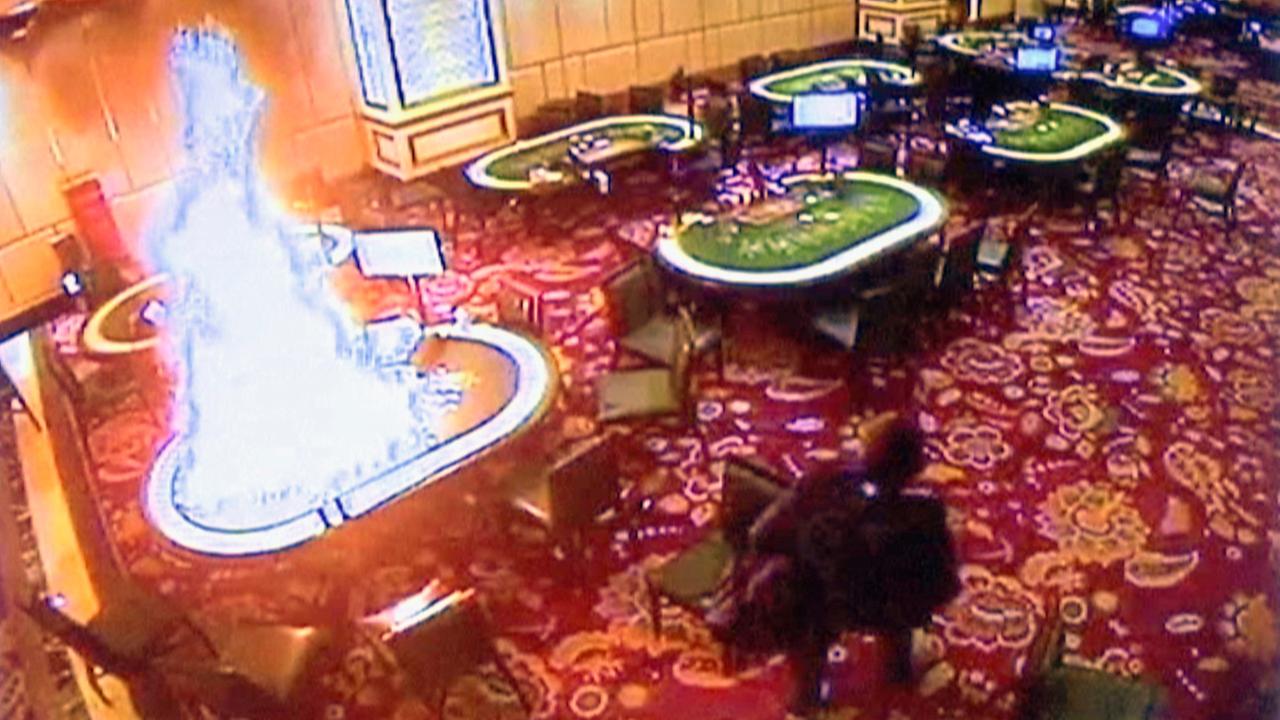Macau Government Demands Casino Security Reports After Manila Attack
Posted on: June 6, 2017, 03:54h.
Last updated on: June 6, 2017, 03:57h.
Two government agencies in Macau met over the weekend to discuss ways to secure its sprawling casino floors from violent attacks. Last week’s deadly rampage inside the Resorts World Manila complex sparked the cause for concern.

Macau’s Gaming Inspection and Coordination Bureau (DICJ) met with the city’s Judiciary Police and representatives from the major casino resorts on Sunday to consider whether security enhancements were needed to properly safeguard guests. The meeting came just days after a gunman and arsonist with a reportedly severe gambling addiction killed 37 people inside a Philippines casino.
According to media reports, the Macau police department is asking casinos to increase their security personnel and surveillance equipment to better prevent against similar attacks. On Monday, they also asked all casino operators in the territory to submit a report within a week about the security systems they have in place.
“Everyone agreed that performing a good safety job has a direct influence over Macau’s development into a world tourism and leisure center,” Macau Secretary for Economy and Finance Lionel Leong said of the weekend meeting. “Whether it’s the safety of tourists, of Macau residents, or on-duty people, our levels of concern are high.”
In Manila, a gunman armed with an assault rifle walked calmly into a casino before he began shooting at empty slot machines and dousing game tables with gasoline and setting them ablaze. The mayhem, recorded by surveillance cameras, quickly turned into mass murder, as 24 casino guests and 12 employees died from inhaling smoke and toxic fumes. The perpetrator later walked into a hotel room and committed suicide.
Vulnerable Masses
Macau casinos, like most in the US, don’t typically have imposing security presences at their entrance. At regional American resorts, identification is sometimes checked, but you’d need to go out of your way to find a gaming floor that forces patrons to walk through a metal detector prior to placing a bet.
That could soon change in response to ongoing fears of terrorism. Casino floors might one day be treated like stadiums or event centers, though the effectiveness of such a solution would be questionable.
It’s unclear what measures Macau officials might consider, and how casinos elsewhere around the world may or may not follow their lead.
Terrorism has become an unfortunate reality in the 21st century. Preventing suicidal people inflicting mass casualties at a casino could prove to be a harrowing task, particularly if casinos aren’t properly equipped protect both their public and private spaces.
For now Chinese officials are collecting data and beginning a systematic conversation.
Lone Wolves and Suicide Vests
In just the past few weeks, there have been plenty of ghastly examples of types of attacks casinos have to consider, whether they be directed by terrorists or just deranged individuals.
On May 18, a lone wolf ran his car down the sidewalk of Time Square in New York, killing one and injuring nearly two dozen. Reportedly inspired by ISIS, the driver was also said to be intoxicated on PCP-laced marijuana.
On May 22, a suicide bomber detonated an explosive outside the Manchester Arena in England following an Ariana Grande performance. The blast killed 23 and injured 120 others, many of them children. ISIS once again claimed responsibility.
On June 2, the chaos at Resorts World in Manila, capital of the Philippines, ended the lives of dozens. US President Donald Trump called the act terrorism, but Philippine authorities said there was no indication of any connection to ISIS or other political motivations in this case.
According to the Global Terrorism Database, incidences of terrorism around the world have increased dramatically since 2001, with a significant uptick in deadly attacks starting in 2011.
In 2010, there were fewer than 10,000 reported deaths from acts of terrorism. In 2014, there were more than 40,000.
No comments yet